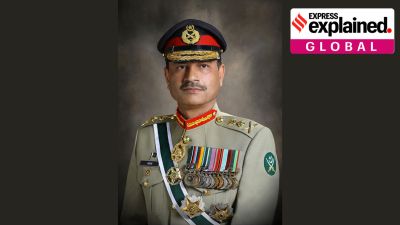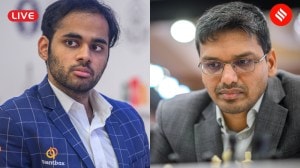Varsity begins golden jubilee celebrations
PUNE, February 10: Chancellor and Maharashtra Governor Dr P C Alexander today minced no words as he talked about the state of higher educati...

PUNE, February 10: Chancellor and Maharashtra Governor Dr P C Alexander today minced no words as he talked about the state of higher education in the country, wondered whether the law of demand and supply could be applied to the planning of the rapidly multiplying universities and colleges and decried the gross neglect of primary and secondary schools.
Alexander who inaugurated the golden jubilee celebrations of the University of Pune said that there was a need to draw a line and take a stand for quality rather than quantity. From 25 universities in 1947 to 197 and 34 deemed universities today, from 700 to 8000 colleges, from 2.65 lakh students to over 50 lakh today calls for some re-thinking. Can we go on spending our resources merely because there will be a growing demand for higher education, he questioned.
However, pointing out the crux of the issue, was also the paucity of good teachers which proved to be the number one bottleneck in any developmental programme of the university. A mere researchdegree is not an essential qualification to be a good teacher and what use is a PhD if the teacher cannot communicate with the student, he asked.
Highlighting the gross neglect of primary and secondary schools, Alexander called for a radical shift in priorities and diversion of resources to build up the foundation of education. “We have to delink school from university and higher education,” he stressed adding that those who apply for higher education should be prepared to pay the cost for the same, except for the underprivileged classes. He also called for inculcating value-based education in the school curricula.
Dr R Chidambaram, chairman, Atomic Energy Commission and secretary, to the Government of India, Department of Atomic Energy delivered the key-note address wherein he urged for a synergistic interaction between the national laboratory system and the university system would equip them to take on bigger challenges.
Chidambaran stated that synergy was the crying need for India and exhortedthat the Science and Technology system should not only consist of laboratories, scientists, engineers, technicians and supporting staff withing the institutions, but also politicians and bureaucrats who have influence over the system.
He also sought to raise the point that we had been living too long with a mindset of the supremacy of the good researcher over the good teacher. The dogma that has evolved in our system that a teacher must do research to advance professionally has often led to many teachers taking to a few years of research as a necessary evil which dilutes the resources available to the numerous excellent researchers in the university system.
Earlier Pune University Vice-Chancellor Dr Vasant Gowariker gave an overview of the university’s glorious fifty years and lauded the earlier V-Cs who met whatever problems came their way head-on while calling upon successive V-Cs to continue the peer-review system as a basic backbone of the academia.Speaking at a seminarorganised later on Challenges of higher education during in the 21st century’ several eminent speakers said that higher education in India, besides serving as a medium for bringing about social change, should be re-oriented towards imparting training in fast-growing areas.
Prof V G Bhide, former Vice Chancellor said intellectual property, rather than military strength would play a key role for a nation’s success in the coming century. There must shift from "teaching" to "learning", whereby universities will be forced to adopt "global thinking" in their approach, he urged. A special meeting of the senate, management and academic council was also held.


- 01
- 02
- 03
- 04
- 05





























